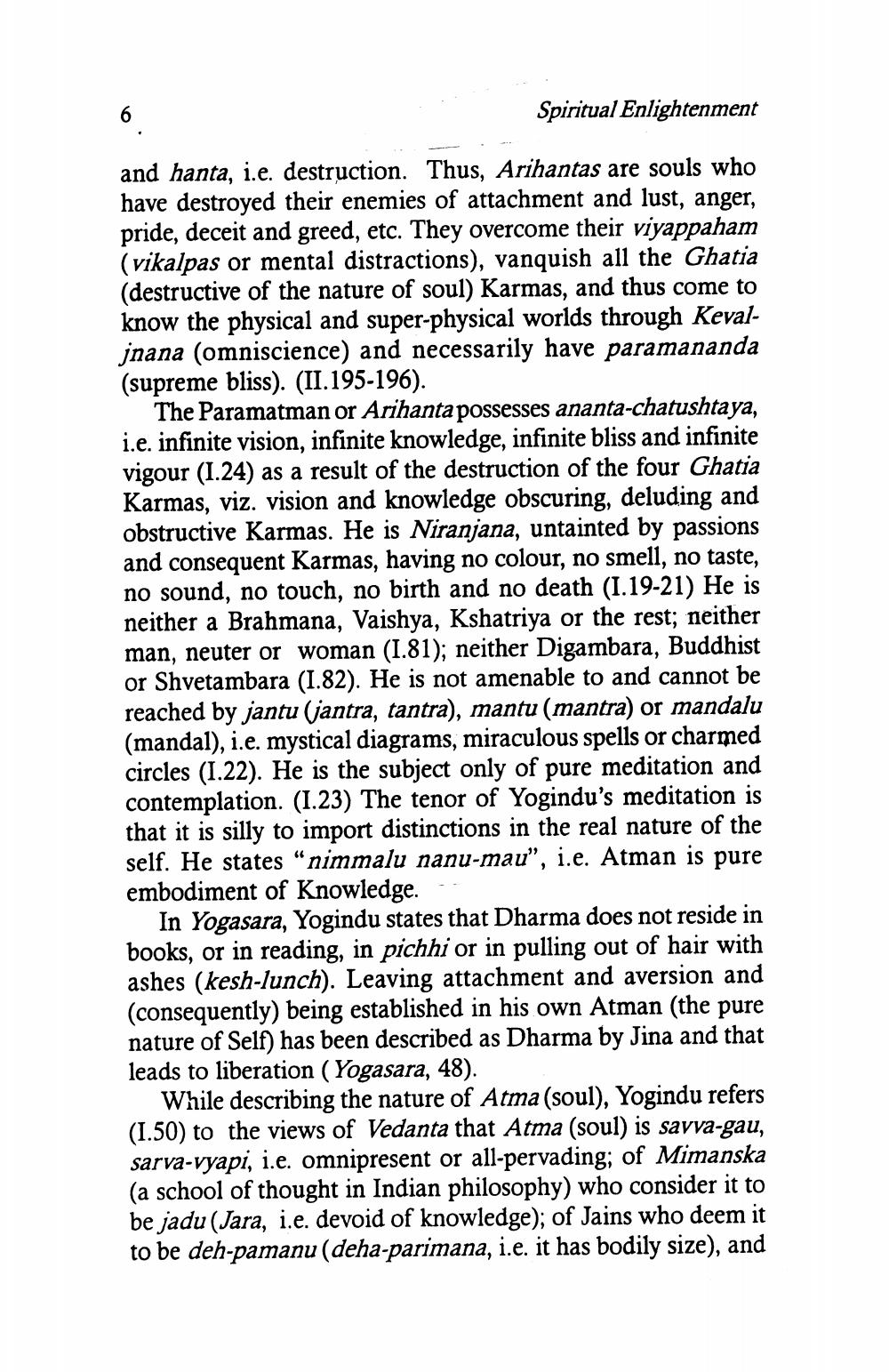________________
60
Spiritual Enlightenment
and hanta, i.e. destruction. Thus, Arihantas are souls who have destroyed their enemies of attachment and lust, anger, pride, deceit and greed, etc. They overcome their viyappaham (vikalpas or mental distractions), vanquish all the Ghatia (destructive of the nature of soul) Karmas, and thus come to know the physical and super-physical worlds through Kevaljnana (omniscience) and necessarily have paramananda (supreme bliss). (II.195-196).
The Paramatman or Arihanta possesses ananta-chatushtaya, i.e. infinite vision, infinite knowledge, infinite bliss and infinite vigour (I.24) as a result of the destruction of the four Ghatia Karmas, viz. vision and knowledge obscuring, deluding and obstructive Karmas. He is Niranjana, untainted by passions and consequent Karmas, having no colour, no smell, no taste, no sound, no touch, no birth and no death (I.19-21) He is neither a Brahmana, Vaishya, Kshatriya or the rest; neither man, neuter or woman (I.81); neither Digambara, Buddhist or Shvetambara (1.82). He is not amenable to and cannot be reached by jantu (jantra, tantra), mantu (mantra) or mandalu (mandal), i.e. mystical diagrams, miraculous spells or charmed circles (1.22). He is the subject only of pure meditation and contemplation. (I.23) The tenor of Yogindu's meditation is that it is silly to import distinctions in the real nature of the self. He states “nimmalu nanu-mau”, i.e. Atman is pure embodiment of Knowledge.--
In Yogasara, Yogindu states that Dharma does not reside in books, or in reading, in pichhi or in pulling out of hair with ashes (kesh-lunch). Leaving attachment and aversion and (consequently) being established in his own Atman (the pure nature of Self) has been described as Dharma by Jina and that leads to liberation (Yogasara, 48).
While describing the nature of Atma (soul), Yogindu refers (1.50) to the views of Vedanta that Atma (soul) is savva-gau, sarva-vyapi, i.e. omnipresent or all-pervading; of Mimanska (a school of thought in Indian philosophy) who consider it to be jadu (Jara, i.e. devoid of knowledge); of Jains who deem it to be deh-pamanu (deha-parimana, i.e. it has bodily size), and




